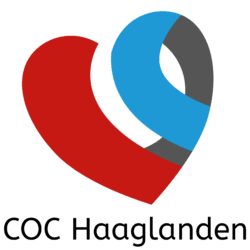Pink council debate in The Hague
Before the start of the Pink Council debate in The Hague, representatives of PvdA, D66, GroenLinks, VVD, CDA, SP, Party for the Animals, The Hague City Party and Dynamo The Hague sign the Pink Ballot Box Agreement. In this agreement, the parties promise to commit themselves to gender and sexual diversity in The Hague. Concrete plans: information at more schools, tackling chants and better registration of LGBTI-related violence. Striking: really religiously inspired parties shine in this debate because of their absence.
Immediately after the signing of the Pink Ballot Box Agreement, Sebastiaan Kruis (PVV) grabs the microphone: 'And so nothing is done about the real problem!' Meanwhile, at the front of the room, the glasses of prosecco slide from the tray, splashing a number of panel members. But peace is quickly restored and the first statement – the municipality encourages all schools to organize guest lessons by COC Haaglanden and supports Gay Straight Alliances – appears on the screen. 'It should not stop with information', says Robert van Asten of D66. 'Acceptance must follow. Pupils should feel comfortable at school.' Astrid Frey of CDA says that her daughter recently spoke enthusiastically about such a guest lesson, and adds: 'This should also be done in sports associations.' The audience commented that teachers themselves should know more about it. COC Haaglanden also provides training for teachers. Van Asten thinks that's a good thing: 'It shouldn't depend on one person.'
Poster
Some time ago, Rotterdam ran a poster campaign for free partner choice. Is such a poster, showing two men or two women from different cultural backgrounds, a good idea? GroenLinks sees something in it. 'LGBTI's are not accepted by everyone, not even by the reformatory community for example,' says Erlijn Wenink. "It's a way to start a conversation, but it shouldn't just be posters." For the PVV, the emancipation of the Muslim community is not a priority. Kruis: 'Islam forbids homosexuality, that's the problem.' A Kurdish woman in the room says that homosexuals are welcome in her family and a man says: 'You give everyone the same brush. You see in me a Muslim, and not the homosexual I am.' Bram Roodhart (VVD) and Frey (CDA) believe that Kruis's polarizing and stigmatizing texts solve nothing. "We just have to find a connection."
Work floor
Should a transgender be given preference, given equal eligibility for a job? Transgenders find it difficult to get a job and preferential policies could contribute. Olave Basabose of The Hague City Party and transgender herself thinks it's a good idea. 'At job interviews you will soon be told that you are not representative. It has to be about suitability and we don't get the chance to show that we are suitable.' Roodhart (VVD) is against preferential policy. 'We think it's better to provide information to increase acceptance.' But what about transitional leave, such as maternity leave? 'We would be positive about that.' The audience wonders whether it solves anything, preferential policy for women also yields little. An experienced expert from the room does not need a preference policy either. 'Then you have no life in the workplace.' Basabosa responds: 'I am now also having a hard time in the workplace. But I'd rather that than sit at home.'
Bully moves
The PvdA, Groep De Mos and the Party for the Animals believe that the bully should move if someone is harassing his neighbours. 'You can report it to Roze in Blauw (the police specially trained for LGBTI issues),' says Bülent Aydin (PvdA). 'But the burden of proof remains difficult.' Robin Smit of the Party for the Animals believes that the willingness of the police to act should be greater. 'The person being bullied is exposed to all kinds of torments. That has to stop.' Arjen Dubbelaar (Group De Mos): 'Of course, something preceded it. But a criminal trial can be a learning process.' Istvan Kops of Dynamo argues for more visibility for Pink in Blue.
Meet
For people with a multicultural background, the LGBTI identity can lead to loneliness. That is why the municipality must support meeting opportunities. Jerry Snellink of the SP thinks so too. 'It is difficult for this group to come out. That is why money and psychological help must be made available. Such a place should not be in the middle of the city, but somewhere where it is not so noticeable that you go inside.' Irshad Gobind (The Hague Future) would have liked to have entered into discussions with Islamic parties. 'I myself provide information to young people and I run into the fact that there are so many prejudices.' Bianca van Guine, coordinator of HangOut 070, a meeting place subsidized by the municipality and COC Haaglanden, explains: 'A safe place to meet is important. These young people do not go to the COC quickly. It would be good if there were more such projects.'
Elderly
Should there be a 'Jan Lutje Schipholt house'? Jan Lutje Schipholt, a recently deceased prominent member of COC Haaglanden, campaigned for this for years. 'It is important to combat loneliness', says Kirsten Overboom of the Bond voor Studenten Actie. 'We also want to invest in the Roze Loper.' Dynamo agrees: 'A great idea', says Istvan Kops. 'Nobody wants the elderly to be lonely.' When asked from the audience whether there is any interest in such a house, Dubbelaar (Groep de Mos) answers: 'There are a few small initiatives and there are huge waiting lists for them. That interest is there.'
Checkout
In four years' time, the LGBTI policy in The Hague will be in even better shape, if the parties get a say. The parties promise, among other things, to put pressure on all schools to have guest lectures on sexual and gender diversity provided, to make an effort to increase the willingness to report a violent incident and to make an effort in general to ensure that everyone in The Hague can hold from whom he/she wants.


You cannot reply to this post